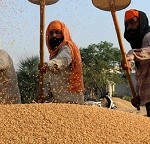India’s uncompromising stand at the General Council meeting of the World Trade Organisation (WTO) in Geneva on 31 July 2014 made it the target of harsh criticism, particularly since it was alone in its decision to block the Trade Facilitation Agreement (TFA). The decision, largely unexplained by the government, was baffling. Gateway House, a foreign policy think tank based in Mumbai, has examined the reasons behind India’s position in a policy perspective titled India’s curious stand at the WTO.
Authored by Rajrishi Singhal, senior geoeconomics fellow at Gateway House, the policy perspective also sheds light on some of the myths and misconceptions surrounding the TFA, what the WTO and India need to do to achieve consensus, and what New Delhi can do to counter the negative publicity.
According to the policy perspective, some of the probable reasons for India’s position at the WTO include:
· India has insisted that it is not opposed to the TFA per se, but had reason to believe that the developed countries were only interested in signing the TFA, leaving food security and other development issues unresolved even though it had been agreed upon in the Bali Declaration in December 2013 that these concerns would be tackled.
· India is opposed to the method that the WTO is currently using to calculate government support to farmers – the average global food grain prices of 1986-88 as the external price benchmark – as prices have risen seven-fold since then. This reference is both outdated and highly skewed.
Some myths surrounding the TFA:
· The perception that the TFA will increase global GDP by $1 trillion and create 21 million additional jobs is an overstated estimate based on assumptions rather than facts.
· The enormous change that the TFA is expected to bring to developing countries by improving trade infrastructure is also a myth because the changes will only help importers, which are mostly developed countries, to reach markets faster, thereby improving turn-around times and reducing costs.
A three-point strategy for India to counter the negative publicity:
· The naivete of Indian negotiators in the past has been a handicap in India’s trade negotiations. Therefore, it is necessary that India’s commerce and external affairs ministries hire skilled negotiators, preferably from the private sector, to engage in talks regarding this matter. It is also important to improve the training schedule of trade negotiators.
· India must work towards communicating its position better so that, rather than being isolated, India can get the support of other developing countries and work with them to ensure that the external price benchmark of 1986-88 is updated.
· India should bring back the issues of services and cross-border movement of trained professionals to the centre-stage of WTO trade negotiations.
The summary of the paper is available here, and the complete policy perspective is available here.
For more information or interview requests, please contact Reetika Joshi at joshi.reetika@gatewayhouse.in.


